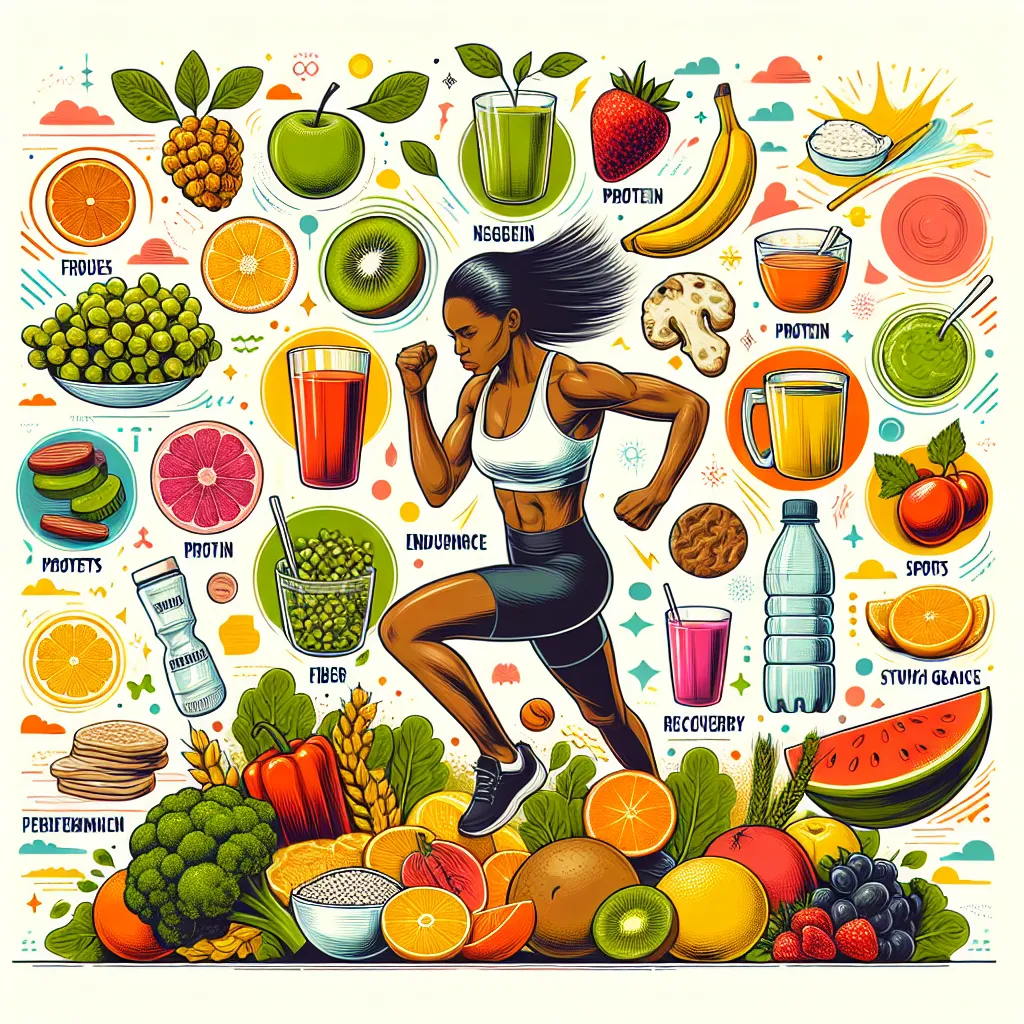Sports diet is a crucial aspect of athletic performance and overall health. As an IELTS candidate, understanding and effectively using vocabulary related to sports nutrition can significantly enhance your performance in the exam. This article will explore key terms, their usage, and provide practical tips to help you master sports diet vocabulary for IELTS success.
Introduction to Sports Diet
Sports diet /spɔːrts daɪət/ (noun): A specialized eating plan designed to meet the nutritional needs of athletes and active individuals to optimize their performance, recovery, and overall health.

Context and Usage
-
A well-balanced sports diet is essential for athletes to maintain peak performance throughout their training and competitions.
In this sentence, “sports diet” refers to the overall nutritional plan that athletes follow to support their physical demands. -
The nutritionist recommended a high-carbohydrate sports diet to help the marathon runners prepare for the upcoming race.
Here, “sports diet” is specifically tailored to the needs of marathon runners, emphasizing carbohydrates for endurance. -
Professional athletes often consult with dietitians to create a personalized sports diet that addresses their unique nutritional requirements.
This example highlights the individualized nature of sports diets, emphasizing that they are tailored to specific athletes’ needs. -
The Olympic swimmer’s sports diet included a balance of lean proteins, complex carbohydrates, and healthy fats to support her intense training regimen.
This sentence demonstrates how a sports diet encompasses various food groups to meet an athlete’s nutritional needs. -
Proper hydration is a crucial component of any effective sports diet, especially for athletes competing in hot climates.
Here, the importance of hydration within a sports diet is emphasized, particularly in challenging environmental conditions.
Sports diet vocabulary is highly relevant to the IELTS exam, particularly in the Reading and Writing sections. It may appear in passages about health, nutrition, or sports science. In the Speaking test, it could be useful when discussing topics related to fitness, health, or athletic performance.
Analyzing Sports Diet Vocabulary
Word Structure
Let’s break down some common terms related to sports diet:
-
Macronutrients /ˌmækrəʊˈnjuːtriənts/ (noun):
- Macro (prefix): large
- Nutrient (root): a substance that provides nourishment
Meaning: Essential nutrients required in large amounts in the diet, such as proteins, carbohydrates, and fats.
-
Hydration /haɪˈdreɪʃən/ (noun):
- Hydra (root): water
- -tion (suffix): the action or state of
Meaning: The process of providing an adequate amount of water to bodily tissues.
Synonyms and Antonyms
-
Nutrition /njuːˈtrɪʃən/ (noun): The process of providing or obtaining food necessary for health and growth.
- Synonyms: Nourishment, sustenance, alimentation
- Antonyms: Malnutrition, starvation
-
Optimize /ˈɒptɪmaɪz/ (verb): To make the best or most effective use of a situation or resource.
- Synonyms: Enhance, maximize, improve
- Antonyms: Diminish, worsen, impair
Memorization Techniques for Sports Diet Vocabulary
Mind Mapping
Create a mind map centering on “Sports Diet” with branches for key components:
-
Macronutrients
- Proteins
- Carbohydrates
- Fats
-
Micronutrients
- Vitamins
- Minerals
-
Hydration
- Water
- Electrolytes
-
Timing
- Pre-workout
- During workout
- Post-workout
Creating Stories or Images
Imagine a superhero named “Nutri-Athlete” whose powers come from different elements of a sports diet. For example:
- Protein gives Nutri-Athlete super strength
- Carbohydrates provide energy bursts for speed
- Proper hydration allows Nutri-Athlete to withstand extreme temperatures
This vivid imagery can help you remember key components of a sports diet and their functions.
Practicing Sports Diet Vocabulary
Application Exercises
-
Write a paragraph describing an ideal sports diet for a professional soccer player. Use at least five vocabulary terms related to sports nutrition.
-
Create a sample meal plan for a day, incorporating appropriate sports diet terminology and explaining the purpose of each meal in relation to athletic performance.
-
Discuss the importance of proper hydration in sports performance, using relevant vocabulary. Consider how hydration needs might differ across various sports.
For more information on hydration in sports, check out our article on sports hydration.
Repetition and Review
Remember to review these terms regularly. Try incorporating them into your daily conversations about health and fitness. You could also create flashcards with the term on one side and its definition, pronunciation, and an example sentence on the other.
Conclusion
Mastering sports diet vocabulary is not only beneficial for your IELTS performance but also for your overall understanding of health and nutrition. By familiarizing yourself with these terms and concepts, you’ll be better equipped to discuss topics related to athletic performance and general well-being.
Remember to practice using these words in context, whether in writing tasks or speaking exercises. The more you engage with this vocabulary, the more natural and confident your usage will become.
Do you have any questions about sports diet vocabulary or how to use these terms effectively in the IELTS exam? Feel free to share your thoughts or experiences in the comments below!